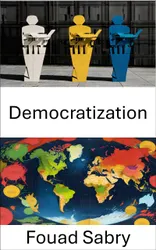System Justification explores the psychological mechanisms driving individuals to defend and uphold current social, economic, and political systems. It offers a fresh perspective, challenging conventional views on resistance and societal change. In political science, grasping system justification is vital to understanding societal stability and transformation.
Chapters Overview:
1: System justification - Uncover how people rationalize and support existing structures.
2: Prejudice - Discover how system justification shapes prejudices and intergroup dynamics.
3: Out-group homogeneity - Learn how stereotypes reinforce social divisions.
4: In-group favoritism - Understand biases that support power hierarchies.
5: Social dominance orientation - Explore preferences for group inequality.
6: In-group and out-group - Examine intergroup dynamics and their societal effects.
7: Social dominance theory - Analyze group-based hierarchies' relationship with system justification.
8: Social identity theory - Investigate how group identity fosters support for existing systems.
9: Self-categorization theory - Study how group identification shapes social attitudes.
10: Integrated threat theory - Understand how perceived out-group threats reinforce system justification.
11: Black sheep - Explore how deviant in-group members reinforce norms.
12: Optimal distinctiveness theory - Investigate balancing inclusion and distinctiveness in system justification.
13: Stereotype - Examine how stereotypes support the status quo.
14: Self-stereotyping - Discover how internalized stereotypes impact social attitudes.
15: Collective narcissism - Learn how group pride reinforces existing structures.
16: Implicit stereotype - Investigate unconscious biases that support system justification.
17: Intergroup anxiety - Examine how anxiety strengthens system justification.
18: John Jost - Insights into Jost’s contributions to system justification theory.
19: Metastereotype - Learn how perceptions of group stereotypes affect system support.
20: Diversity ideologies - Analyze how diversity views impact societal systems.
21: Axes of Subordination - Explore intersections of subordination in system justification.
System Justification is a crucial text for students and professionals in political science, offering a deep dive into the psychological forces that maintain societal stability.
























